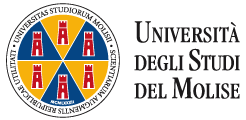Before applying
What to know before applying for an Erasmus Mobility for Studies at Università del Molise
Students are allowed to apply for a an Erasmus mobility for studies at Università del Molise under two preliminary conditions: 1) An official Erasmus Inter Institutional Agreement is in place between their Home University and Università del Molise, and 2) the Università del Molise’s IRO has received an official nomination of the student from the Home University. Upon receiving the nomination, the Università del Molise’s IRO will send a confirmation of reception both to the Home University and to the nominated student.
Nomination deadlines and instructions for Partners
Università del Molise Partner Institutions in the framework of the Erasmus+ Program are invited to nominate their students according to the following deadlines:
| 1st Semester (Fall semester) or whole academic year | 30 June |
| 2nd Semester (Spring-Summer) | 30 October |
Partners are kindly requested to send their nominations via email to relazint@unimol.it providing for each student the following information: name and surname, a valid email address, study field, level of study, date of birth, citizenship.
After receiving the nomination, IRO’s staff will get in contact directly with the student, to give her further instructions about how to complete the application and the Learning Agreement (LA) submission.
Please note: For the 2nd semester 2020-21, given the uncertainties following the spreading of the Covid-19 pandemic, Università del Molise will grant all the possible flexibility in relation to the nomination deadline. We invite our Partners to send us nomination (or specific information requests) well after the deadline has expired. Their acceptance will be evaluated case-by-case.
Academic Calendar
In the framework of the Erasmus Students Mobility for Studies (SMS), incoming students are allowed to earn credits (ECTS) by taking part in teaching activities (like lectures, classes or practical learning) at the hosting University, and according to the rules of the hosting University. The Università del Molise’s teaching activities are organized yearly in two distinct semesters (Fall and Spring, or as they are frequently called in Italian, First and Second) which are in their turn divided into a teaching period and an examination period, according to the following Academic Calendar:
| 1st Semester (Fall semester) | From 21 September to end February |
| Teaching period | From 21 September to 22 December |
| Examination period | From 11 January to 26 February |
| 2nd Semester (Spring-Summer) | From 1 March to 30 July |
| Teaching period | From 1 March to 7 June |
| Examination period | From 8 June to 30 July |
Class schedules are set yearly, just before lessons start.
ECTS
In the Italian university system, a certain number of credits (CFU in Italian; 1 CFU = 1 ECTS) is assigned to each teaching activity, and each teaching activity is considered completed after passing a final exam. The final exam may be written, oral, or a mix of the two. On-the-run tests during the course of the teachings may be also planned. The final examination result is graded on a scale from 0 to 30 points. To pass the final exam it is needed to reach at least 18 points. Indicatively, each numerical grade corresponds to a qualitative grade as follows: 18-23: Sufficient to pass; 24-27: Good; 28-30: Excellent; 30 cum laude: Mention of honour.
Language Requirements
The official language of instruction is Italian. Università del Molise strongly recommends that Erasmus incoming students possess at least A2 level of knowledge of Italian language before the mobility starts, according to the Common European Framework of Reference for Languages (CEFR). However, an official certification of competence in Italian is not required to apply. We strongly recommend Erasmus incoming students to get the highest possible benefit from the Erasmus On Line Linguistic Support (OLS) licenses provided by their Home Universities in order to develop confidence with Italian language before and during the mobility.
Università del Molise adopts English as vehicular language, and Erasmus incoming students are expected to know English at a sufficient level, in order to interact with administrative offices and professors.
A list of teachings delivered in English is set yearly and is available here.
Teachers and professors are open to provide Erasmus students studying materials in English or other languages upon request, even for the teaching activities delivered in Italian. Professors, in addition, may allow Erasmus students to take final exams in English or other languages different from Italian, but this must be agreed upon case by case, before the examination period starts, and under direct request of the Erasmus incoming student.
